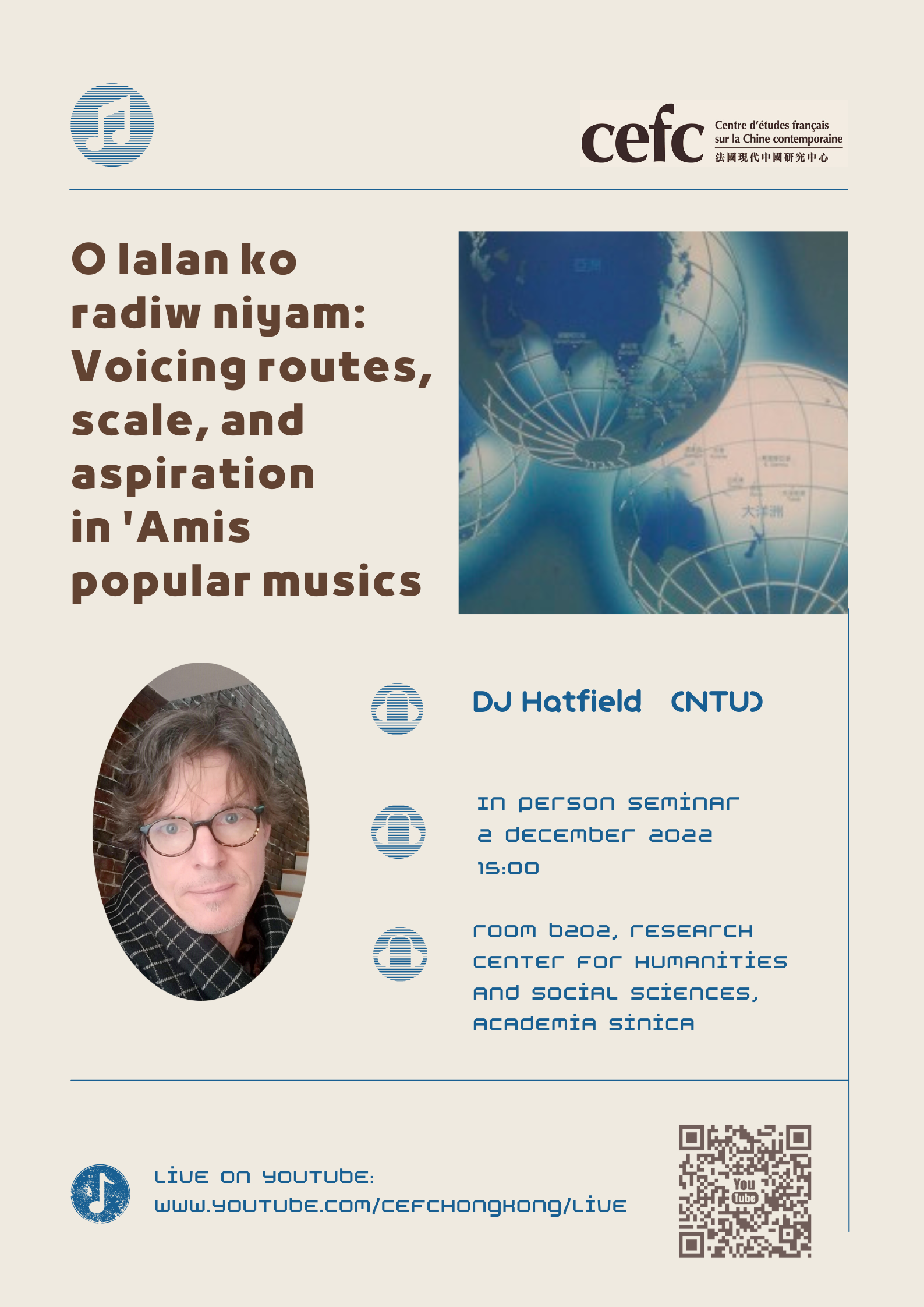O lalan ko radiw niyam:
Voicing routes, scale, and aspiration in ‘Amis popular musics
DJ Hatfield (NTU)
In person seminar
2 December 2022
15:00
Room B202, Research Center for Humanities and Social Sciences, Academia Sinica
In this paper, I discuss scale as a necessary yet often overlooked feature of voice. Listening to ‘Amis language popular musics from two distinct periods, I focus on ways in which timbre and other qualities of vocal inflection provoke listeners to reconsider which kinds of voices can have access to, or circulate across, differently scaled places. To do so, I employ the metaphor of voice as a lalan–‘Amis for path, road, or network–that may have a variety of scalar effects while being entangled with the infrastructures and scale making projects of settler colonial states. ‘Amis musicians, who belong to one of Taiwan’s sixteen recognized Indigenous groups, have long performed musics in a wide variety of popular genres. Musicians performing for a largely ‘Amis audience in the 1970s and 1980s recorded and circulated ‘Amis popular musics in the context of official cultural policies that proscribed Indigenous languages and massive rates of outmigration as ‘Amis men were recruited as labor in Taiwan’s far ocean fishing fleet and construction trades. In contrast, ‘Amis musicians today produce music for both settler and Indigenous audiences, often receiving assistance from governments dedicated to multiculturalism. Although voice is differently configured in these two contexts, in both it tends to be aspirational. While they may be committed to local ‘Amis communities, ‘Amis musicians also tend to refuse the status of a “local” voice, employing choice of genre and technology to project their voices as modern and cosmopolitan. Through a combination of ethnographic research and close readings of song texts, I show how scale is a feature of voice, yet one that may have ironic effects and, given the dialogic quality of voice, not resolve clearly. By focusing on the contrasting qualities of scale in these two contexts, this research shows how musical performance may contribute to a reordering of commonsense notions that restrict certain kinds of voices—and the people who produce them—to limited spaces
DJ Hatfield is a sociocultural anthropologist and sound installation artist, he taught at the College of William and Mary and the Berklee College of Music before joining the Graduate Institute of Musicology of National Taiwan University in 2021. Hatfield’s research interests include soundscapes, Indigenous media, and the ethics of locality. His ethnographic sound art work has appeared in the 2020 Taipei Biennial, the 2019 TECLand Arts Festival, the 2018 Mipaliw Arts Festival, and the 2016 Taitung International Austronesian Arts Awards.


